Are you planning a trip to Vietnam and wondering about healthcare accessibility? Mobile clinics and outreach programs play a crucial role in delivering medical assistance, especially in remote areas. SIXT.VN is dedicated to providing travelers with essential information and services to ensure a safe and healthy journey in Vietnam. Explore our services for seamless travel experiences, including airport transfers, hotel bookings, and curated tour packages, alongside vital health resources.
1. What Are Mobile Clinics and Outreach Programs?
Yes, Vietnam has mobile clinics and outreach programs, particularly important for rural areas. Mobile clinics are healthcare services delivered via specially equipped vehicles, while outreach programs involve healthcare professionals going directly to communities to provide medical assistance and education. These initiatives help bridge the gap in healthcare access, ensuring that even those in remote or underserved areas receive necessary medical attention.
1.1. The Role of Mobile Health Services
Mobile health services, also known as mobile clinics, are a pivotal component of Vietnam’s healthcare infrastructure, designed to extend medical care to individuals who face geographical, economic, or social barriers to accessing traditional healthcare facilities. These services often operate in specially equipped vehicles, such as vans or buses, that are retrofitted to function as fully functional medical units. The vehicles are staffed by a team of healthcare professionals, including doctors, nurses, and community health workers, who are trained to provide a range of primary care services.
1.1.1. Advantages of Mobile Clinics
- Increased Accessibility: Mobile clinics can reach remote and underserved communities, providing essential healthcare services to those who cannot easily travel to hospitals or clinics.
- Cost-Effectiveness: By bringing healthcare directly to the people, mobile clinics reduce the financial burden on patients, who may otherwise face high transportation costs or lost wages.
- Community Trust: Mobile clinics often establish a stronger rapport with local communities, fostering trust and encouraging more people to seek medical care.
- Preventive Care: Many mobile clinics focus on preventive care, such as vaccinations, health screenings, and education programs, which can help reduce the incidence of chronic diseases.
1.2. Community Outreach Initiatives
Community outreach programs in Vietnam are proactive healthcare initiatives designed to engage directly with local communities to deliver essential medical services and health education. These programs are typically conducted by teams of healthcare professionals, including doctors, nurses, and community health workers, who travel to remote or underserved areas to provide care.
1.2.1. Key Features of Outreach Programs
- Health Education: Outreach programs provide valuable health education to communities, covering topics such as hygiene, nutrition, disease prevention, and family planning.
- Health Screenings: Outreach teams conduct health screenings to identify individuals at risk for various diseases, such as diabetes, hypertension, and cancer, allowing for early intervention and treatment.
- Immunizations: Outreach programs often provide vaccinations to protect communities from infectious diseases, such as measles, polio, and influenza.
- Referrals: Outreach teams connect individuals with chronic health conditions to appropriate healthcare facilities for ongoing care and management.
1.3. How Mobile Clinics and Outreach Programs Support Tourism
For tourists visiting Vietnam, understanding the availability of mobile clinics and outreach programs can provide peace of mind, especially when traveling to remote areas. According to a report by the Vietnam National Administration of Tourism in 2023, knowing that healthcare services can reach you in case of an emergency enhances the overall travel experience.
1.3.1. Benefits for Tourists
- Emergency Medical Assistance: Mobile clinics can provide immediate medical assistance in case of accidents or sudden illnesses, especially in areas where hospitals are not readily accessible.
- Health Information: Tourists can receive valuable health information and advice from outreach programs, helping them stay healthy and safe during their trip.
- Vaccinations and Preventive Care: Mobile clinics can offer vaccinations and preventive care services to tourists, reducing the risk of contracting diseases.
- Peace of Mind: Knowing that mobile clinics and outreach programs are available can provide peace of mind, allowing tourists to enjoy their trip without worrying about healthcare access.
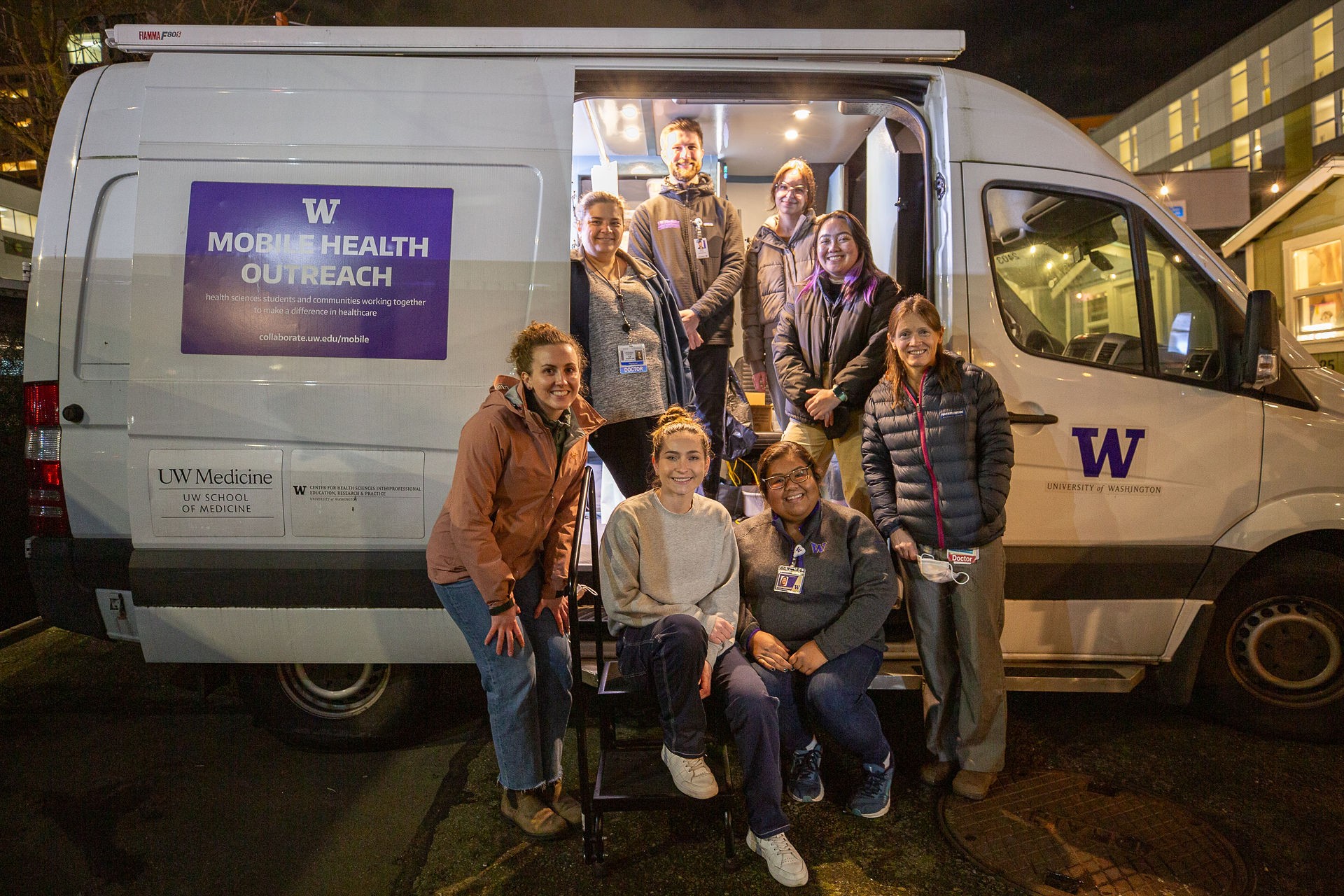 Health Sciences student volunteers and preceptors pose for a picture by the van at the end of an outreach
Health Sciences student volunteers and preceptors pose for a picture by the van at the end of an outreach
Image alt: Health science students and instructors pose with a mobile clinic van after a community outreach program in Vietnam.
2. Who Operates Mobile Clinics and Outreach Programs in Vietnam?
Mobile clinics and outreach programs in Vietnam are run by a variety of organizations, including government agencies, non-governmental organizations (NGOs), and international health organizations. The Ministry of Health plays a significant role in coordinating these efforts, ensuring that healthcare services reach those who need them most. NGOs like the Vietnam Red Cross and international organizations such as the World Health Organization (WHO) also contribute significantly.
2.1. Government Initiatives
The Vietnamese government has implemented several initiatives to improve healthcare access in rural and remote areas. These initiatives include:
2.1.1. National Targeted Programs
The National Targeted Programs are a series of government-led initiatives designed to address specific health challenges in Vietnam. These programs often include mobile health services and outreach activities aimed at improving the health and well-being of vulnerable populations. According to the Ministry of Health, these programs have significantly contributed to reducing mortality rates and improving access to healthcare services in rural areas.
2.1.2. Rural Health Centers
Rural health centers are the primary healthcare providers in many remote areas of Vietnam. These centers often work in collaboration with mobile clinics and outreach programs to extend their reach and provide comprehensive healthcare services to the community.
2.2. Non-Governmental Organizations (NGOs)
NGOs play a crucial role in supplementing the government’s efforts to provide healthcare services in Vietnam. These organizations often focus on specific health issues or target specific populations, such as ethnic minorities or people living in poverty.
2.2.1. Vietnam Red Cross
The Vietnam Red Cross is one of the largest and most active NGOs in the country, providing a wide range of humanitarian and healthcare services. The organization operates mobile clinics and conducts outreach programs to deliver medical assistance, health education, and disaster relief to communities in need.
2.2.2. Other Local and International NGOs
Numerous other local and international NGOs are involved in providing healthcare services in Vietnam. These organizations often work in partnership with local communities and healthcare providers to develop and implement sustainable health programs.
2.3. International Health Organizations
International health organizations, such as the World Health Organization (WHO) and UNICEF, provide technical and financial support to Vietnam’s healthcare system. These organizations work with the government and other stakeholders to improve healthcare policies, strengthen healthcare infrastructure, and implement evidence-based health programs.
2.3.1. World Health Organization (WHO)
The WHO provides technical assistance to Vietnam in areas such as disease prevention and control, health system strengthening, and health workforce development. The organization also supports the development of national health policies and guidelines.
2.3.2. UNICEF
UNICEF focuses on improving the health and well-being of children and women in Vietnam. The organization supports programs aimed at reducing child mortality, improving maternal health, and promoting access to essential healthcare services.
2.4. The Impact of Organizational Efforts on Tourists
Tourists benefit from the combined efforts of these organizations through improved healthcare infrastructure and access to medical services. According to a 2022 report by the Vietnam National Administration of Tourism, the availability of reliable healthcare services is a significant factor in attracting international tourists. SIXT.VN ensures that travelers are well-informed about these resources, providing a sense of security and preparedness during their visit.
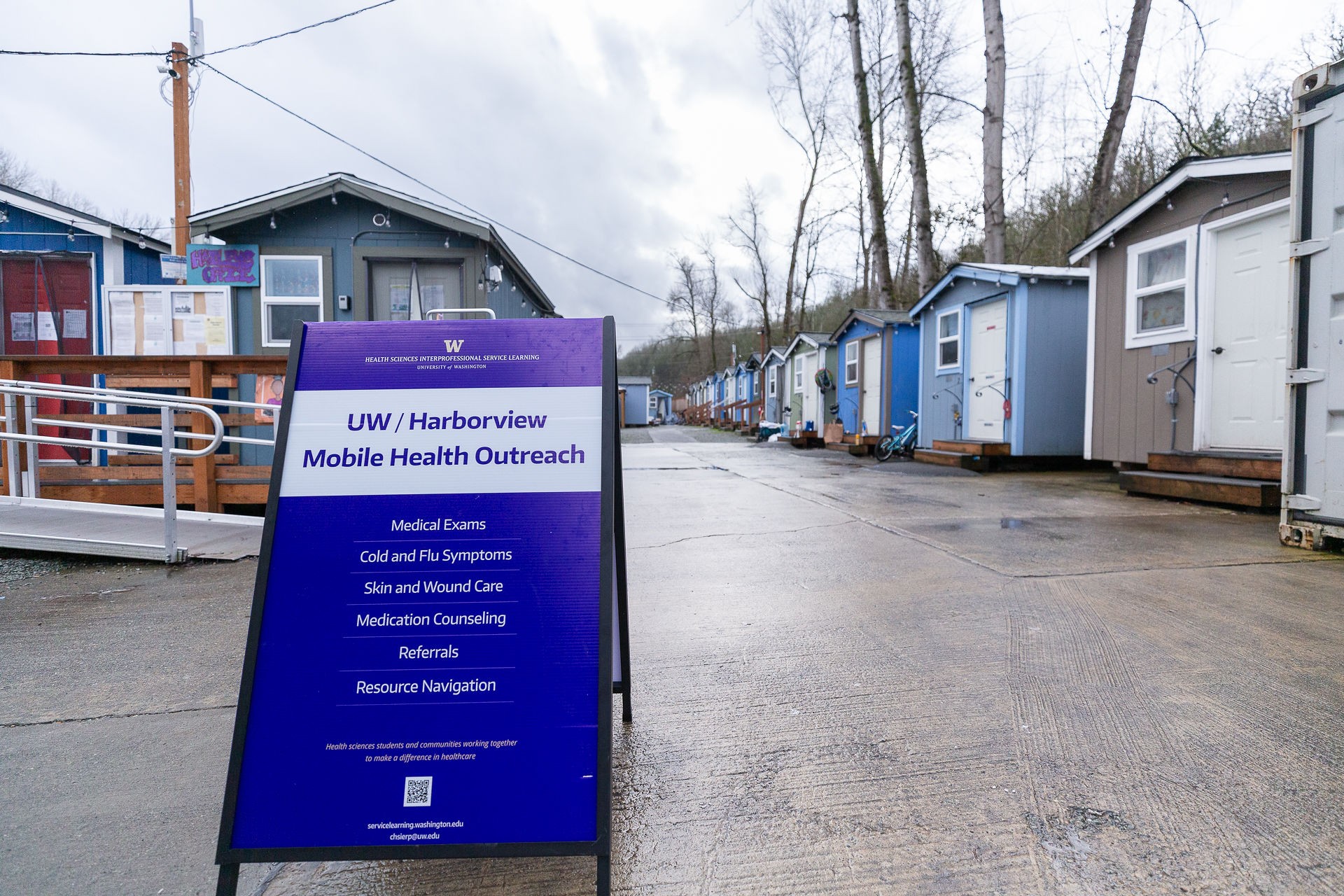 A glimpse into the one of the Tiny Home Villages we serve
A glimpse into the one of the Tiny Home Villages we serve
Image alt: An overview of a Tiny Home Village in Vietnam, showcasing community living and healthcare outreach support.
3. What Services Do Mobile Clinics and Outreach Programs Offer?
Mobile clinics and outreach programs in Vietnam offer a wide array of services tailored to meet the specific needs of the communities they serve. These services typically include primary care, health screenings, vaccinations, maternal and child health services, and health education. Additionally, some programs provide specialized care such as dental services, eye care, and mental health support.
3.1. Primary Care Services
Primary care services are the foundation of mobile clinics and outreach programs in Vietnam. These services include:
3.1.1. General Check-ups
General check-ups are a routine part of primary care, allowing healthcare providers to assess a patient’s overall health and identify any potential health issues early on. During a check-up, a healthcare provider will typically:
- Review the patient’s medical history.
- Perform a physical examination, including checking vital signs such as blood pressure, heart rate, and temperature.
- Order any necessary lab tests or imaging studies.
- Provide health advice and education.
3.1.2. Treatment of Common Illnesses
Mobile clinics and outreach programs provide treatment for a wide range of common illnesses, such as:
- Respiratory infections (e.g., colds, flu, bronchitis)
- Gastrointestinal problems (e.g., diarrhea, food poisoning)
- Skin infections (e.g., boils, rashes)
- Minor injuries (e.g., cuts, bruises)
3.1.3. Management of Chronic Diseases
Managing chronic diseases is a critical component of primary care, especially in areas where access to specialized medical care is limited. Mobile clinics and outreach programs provide ongoing care and support for patients with chronic conditions such as:
- Diabetes
- Hypertension
- Heart disease
- Asthma
3.2. Health Screenings
Health screenings are an essential tool for early detection of diseases and risk factors. Mobile clinics and outreach programs offer a variety of health screenings, including:
3.2.1. Blood Pressure Checks
Blood pressure checks are a quick and easy way to screen for hypertension, a major risk factor for heart disease and stroke.
3.2.2. Blood Sugar Testing
Blood sugar testing is used to screen for diabetes, a chronic disease that can lead to serious complications if left untreated.
3.2.3. Cancer Screenings
Cancer screenings, such as Pap smears for cervical cancer and breast exams for breast cancer, are essential for early detection and treatment.
3.3. Vaccinations
Vaccinations are a cornerstone of preventive healthcare, protecting individuals and communities from infectious diseases. Mobile clinics and outreach programs provide a range of vaccinations, including:
3.3.1. Childhood Immunizations
Childhood immunizations protect children from a variety of serious diseases, such as measles, mumps, rubella, polio, and tetanus.
3.3.2. Flu Shots
Flu shots are recommended annually for all individuals over the age of six months to protect against seasonal influenza.
3.3.3. Other Vaccinations
Mobile clinics and outreach programs may also offer other vaccinations, such as those for hepatitis A, hepatitis B, and typhoid fever, depending on the needs of the community.
3.4. Maternal and Child Health Services
Maternal and child health services are critical for ensuring the health and well-being of women and children. Mobile clinics and outreach programs provide a range of maternal and child health services, including:
3.4.1. Prenatal Care
Prenatal care is essential for ensuring a healthy pregnancy and delivery. Mobile clinics and outreach programs provide prenatal care services such as:
- Regular check-ups
- Ultrasound scans
- Nutritional counseling
- Health education
3.4.2. Postnatal Care
Postnatal care is important for ensuring the health and well-being of both mother and baby after delivery. Mobile clinics and outreach programs provide postnatal care services such as:
- Check-ups for the mother
- Newborn care
- Breastfeeding support
- Family planning counseling
3.4.3. Child Health Services
Child health services are essential for ensuring the healthy growth and development of children. Mobile clinics and outreach programs provide child health services such as:
- Well-child check-ups
- Vaccinations
- Nutritional counseling
- Developmental screenings
3.5. Health Education
Health education is a critical component of mobile clinics and outreach programs. By providing communities with information and resources, these programs empower individuals to make informed decisions about their health.
3.5.1. Hygiene and Sanitation
Health education programs often cover topics such as hygiene and sanitation, teaching communities about the importance of handwashing, proper waste disposal, and safe water practices.
3.5.2. Nutrition
Nutrition education programs provide information on healthy eating habits, the importance of a balanced diet, and the prevention of malnutrition.
3.5.3. Disease Prevention
Disease prevention education programs teach communities about the causes, symptoms, and prevention of common diseases, such as HIV/AIDS, tuberculosis, and malaria.
3.6. Specialized Care
In addition to primary care services, some mobile clinics and outreach programs offer specialized care services such as:
3.6.1. Dental Services
Dental services may include check-ups, cleanings, fillings, and extractions.
3.6.2. Eye Care
Eye care services may include vision screenings, eye exams, and the provision of eyeglasses.
3.6.3. Mental Health Support
Mental health support may include counseling, therapy, and referrals to specialized mental health services.
3.7. How These Services Benefit Tourists
Tourists can benefit significantly from the comprehensive services offered by mobile clinics and outreach programs, particularly in rural or remote areas where healthcare facilities may be limited. Knowing that these services are available can provide peace of mind and ensure that tourists receive timely and appropriate medical care when needed. SIXT.VN helps travelers access information about these resources, ensuring a safer and more enjoyable travel experience.
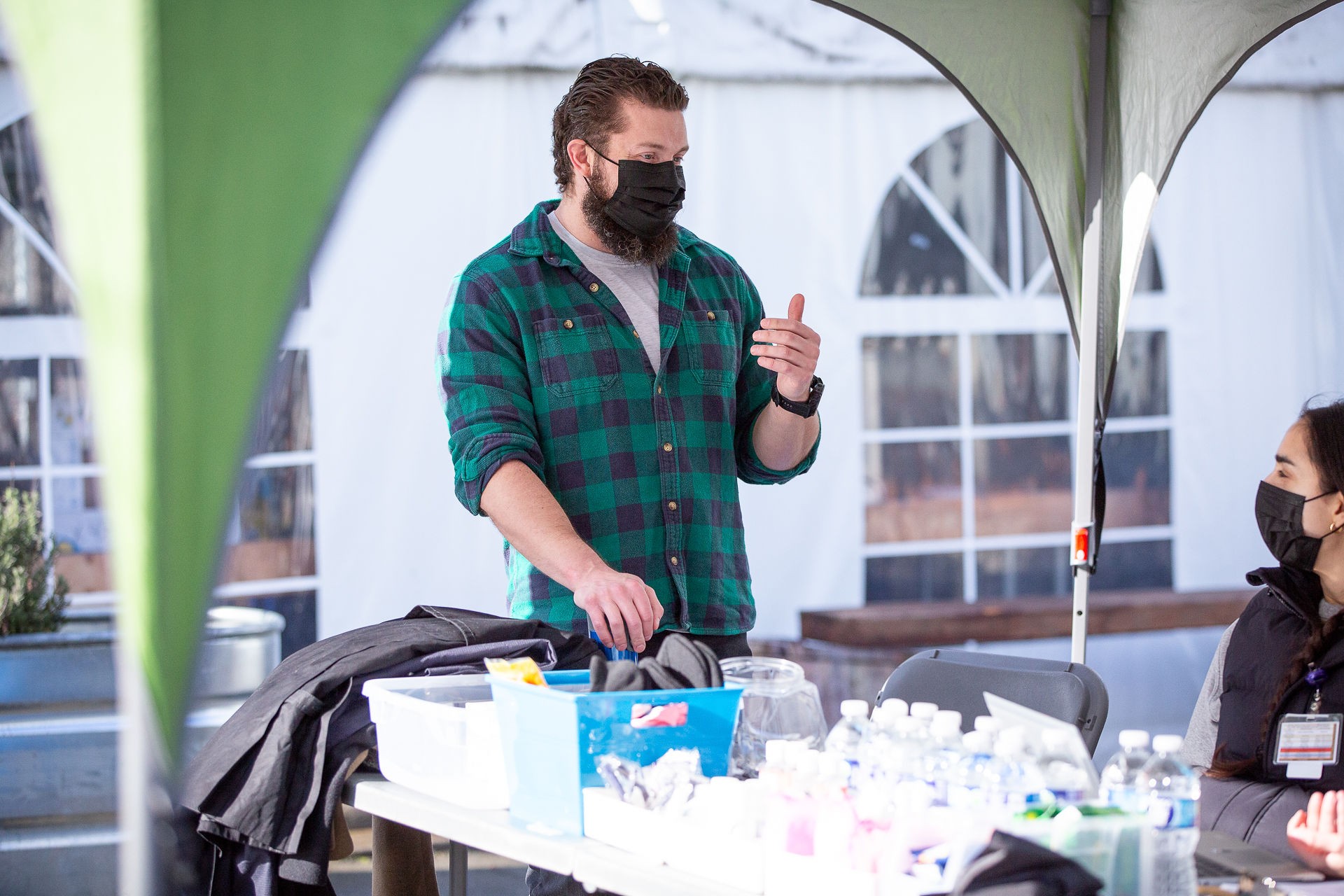 MHO is a student led project; each outreach features two student van drivers whose preparation allows the outreaches to run smoothly
MHO is a student led project; each outreach features two student van drivers whose preparation allows the outreaches to run smoothly
Image alt: Two student drivers from a Mobile Health Outreach program stand in front of their van, emphasizing their role in providing healthcare services.
4. Where Are Mobile Clinics and Outreach Programs Located?
Mobile clinics and outreach programs in Vietnam are strategically located to serve communities with limited access to healthcare. These programs are often found in rural areas, mountainous regions, and urban slums, where healthcare facilities are scarce or inaccessible. The Ministry of Health and local authorities collaborate to identify areas with the greatest need and deploy resources accordingly.
4.1. Rural and Remote Areas
Rural and remote areas of Vietnam often lack adequate healthcare infrastructure, making it difficult for residents to access medical care. Mobile clinics and outreach programs play a crucial role in bridging this gap by bringing healthcare services directly to these communities.
4.1.1. Mountainous Regions
Mountainous regions, such as the Northern Highlands and the Central Highlands, are particularly challenging to reach due to their rugged terrain and remote locations. Mobile clinics and outreach programs use specially equipped vehicles and rely on dedicated healthcare professionals to overcome these challenges and provide healthcare services to isolated communities.
4.1.2. Island Communities
Island communities, such as those in the Mekong Delta and along the coastline, also face challenges in accessing healthcare due to their geographic isolation. Mobile clinics and outreach programs use boats and other watercraft to reach these communities and provide essential medical services.
4.2. Urban Slums
Urban slums are characterized by overcrowding, poor sanitation, and limited access to basic services, including healthcare. Mobile clinics and outreach programs provide healthcare services to residents of urban slums, addressing their unique health needs and challenges.
4.2.1. Industrial Zones
Industrial zones often attract large numbers of migrant workers who may lack access to healthcare. Mobile clinics and outreach programs provide healthcare services to these workers, addressing their occupational health needs and promoting their overall well-being.
4.2.2. Informal Settlements
Informal settlements are often located on the outskirts of cities and lack formal healthcare infrastructure. Mobile clinics and outreach programs provide healthcare services to residents of these settlements, addressing their basic health needs and promoting access to care.
4.3. Specific Provinces and Regions
Several provinces and regions in Vietnam have a high concentration of mobile clinics and outreach programs due to their significant healthcare needs. These include:
4.3.1. Northern Highlands
The Northern Highlands, including provinces such as Lao Cai, Ha Giang, and Dien Bien, are characterized by rugged terrain, remote villages, and a high proportion of ethnic minorities. Mobile clinics and outreach programs play a crucial role in providing healthcare services to these communities.
4.3.2. Central Highlands
The Central Highlands, including provinces such as Dak Lak, Gia Lai, and Kon Tum, are home to a large number of ethnic minorities and face challenges in accessing healthcare due to their remote locations and limited infrastructure.
4.3.3. Mekong Delta
The Mekong Delta, including provinces such as Can Tho, An Giang, and Dong Thap, is a low-lying region with a dense network of rivers and canals. Mobile clinics and outreach programs use boats and other watercraft to reach communities in this region and provide essential medical services.
4.4. How Location Information Benefits Tourists
For tourists planning to visit these areas, knowing the locations of mobile clinics and outreach programs can be invaluable. In case of a medical emergency, tourists can seek assistance from these programs, ensuring they receive timely and appropriate care. SIXT.VN provides updated information on healthcare resources in various regions, assisting travelers in making informed decisions and staying safe during their journey.
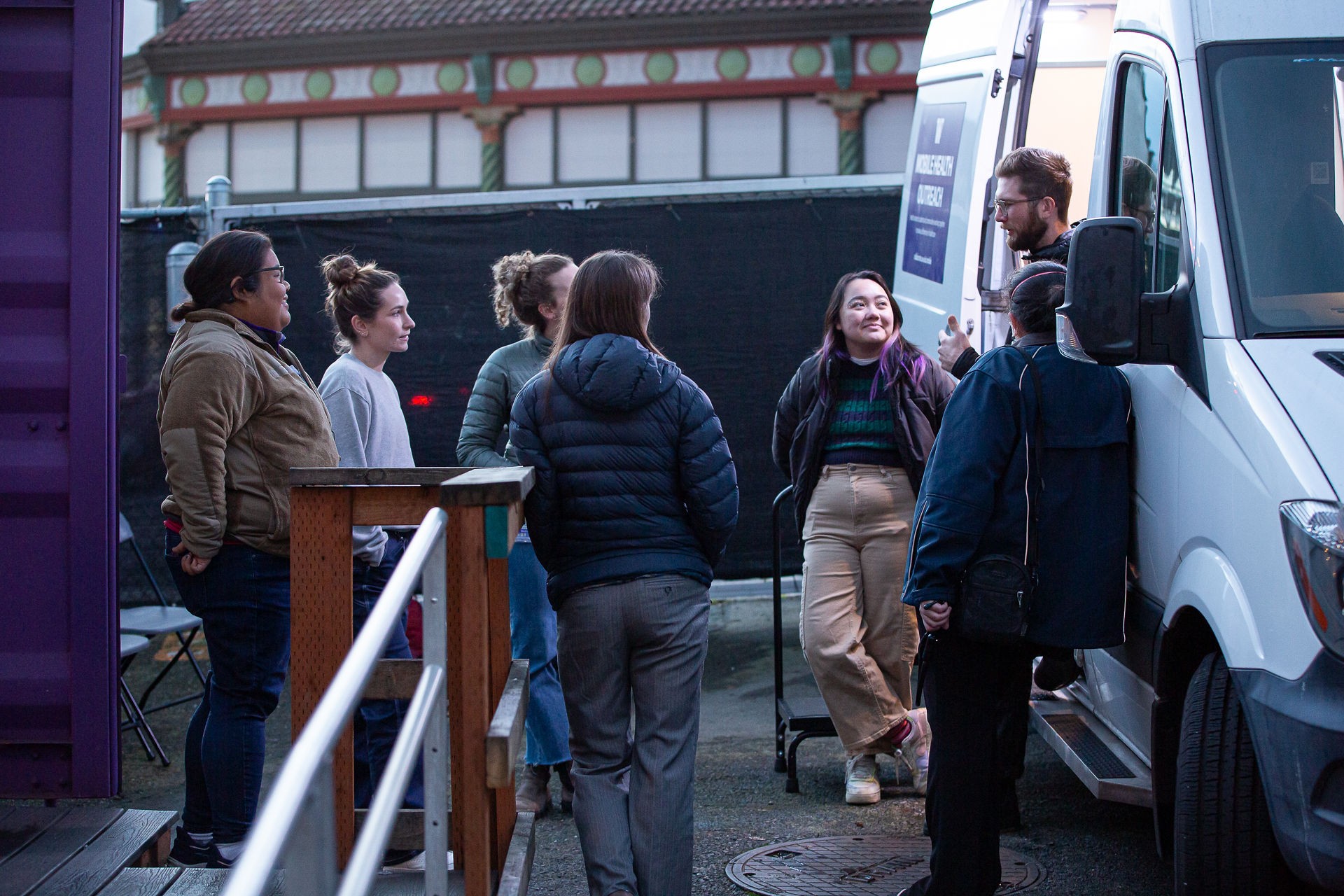 Every outreach starts and ends with a team huddle; pre-briefs allow volunteers to get to know each other and the skills each person brings while debriefs allow volunteers to discuss their learning with the larger group
Every outreach starts and ends with a team huddle; pre-briefs allow volunteers to get to know each other and the skills each person brings while debriefs allow volunteers to discuss their learning with the larger group
Image alt: A team huddle at the start of a mobile health outreach in Vietnam, where volunteers discuss their roles and prepare for the day’s activities.
5. How Can Tourists Access These Services?
Tourists in Vietnam can access mobile clinics and outreach programs through various channels, including local health centers, tourist information centers, and online resources. It is advisable to inquire about available healthcare services upon arrival at your destination. Additionally, travel insurance policies often provide information on local medical facilities and emergency services.
5.1. Local Health Centers
Local health centers are the primary point of contact for healthcare services in many communities. Tourists can visit local health centers to inquire about mobile clinics and outreach programs in the area.
5.1.1. Contact Information
Contact information for local health centers can be obtained from tourist information centers, online directories, or by asking local residents.
5.1.2. Services Offered
Local health centers can provide information on the services offered by mobile clinics and outreach programs, as well as directions to the nearest location.
5.2. Tourist Information Centers
Tourist information centers are a valuable resource for tourists seeking information on healthcare services. These centers can provide information on mobile clinics and outreach programs in the area, as well as contact information for local health centers and hospitals.
5.2.1. Locations
Tourist information centers are typically located in major tourist destinations, such as airports, train stations, and city centers.
5.2.2. Services Offered
Tourist information centers can provide maps, brochures, and other materials that highlight healthcare resources in the area.
5.3. Online Resources
Online resources, such as websites and mobile apps, can provide information on mobile clinics and outreach programs in Vietnam. These resources may include:
5.3.1. Ministry of Health Website
The Ministry of Health website provides information on national health programs and initiatives, including mobile clinics and outreach programs.
5.3.2. Travel Insurance Providers
Travel insurance providers often offer online resources that list local medical facilities and emergency services.
5.4. Travel Insurance Policies
Travel insurance policies can provide valuable information on healthcare services in Vietnam. These policies often include:
5.4.1. Coverage for Medical Expenses
Travel insurance policies typically cover medical expenses incurred while traveling, including those associated with accessing mobile clinics and outreach programs.
5.4.2. Emergency Assistance
Travel insurance policies often provide emergency assistance services, such as medical evacuation and repatriation.
5.5. The Convenience for Tourists Using SIXT.VN
SIXT.VN simplifies the process for tourists by offering comprehensive information on healthcare access, including mobile clinics and outreach programs. By using SIXT.VN, travelers can easily locate and access medical services, ensuring a worry-free trip. Our services include reliable transportation, comfortable accommodations, and access to vital health information, making your travel experience seamless and secure.
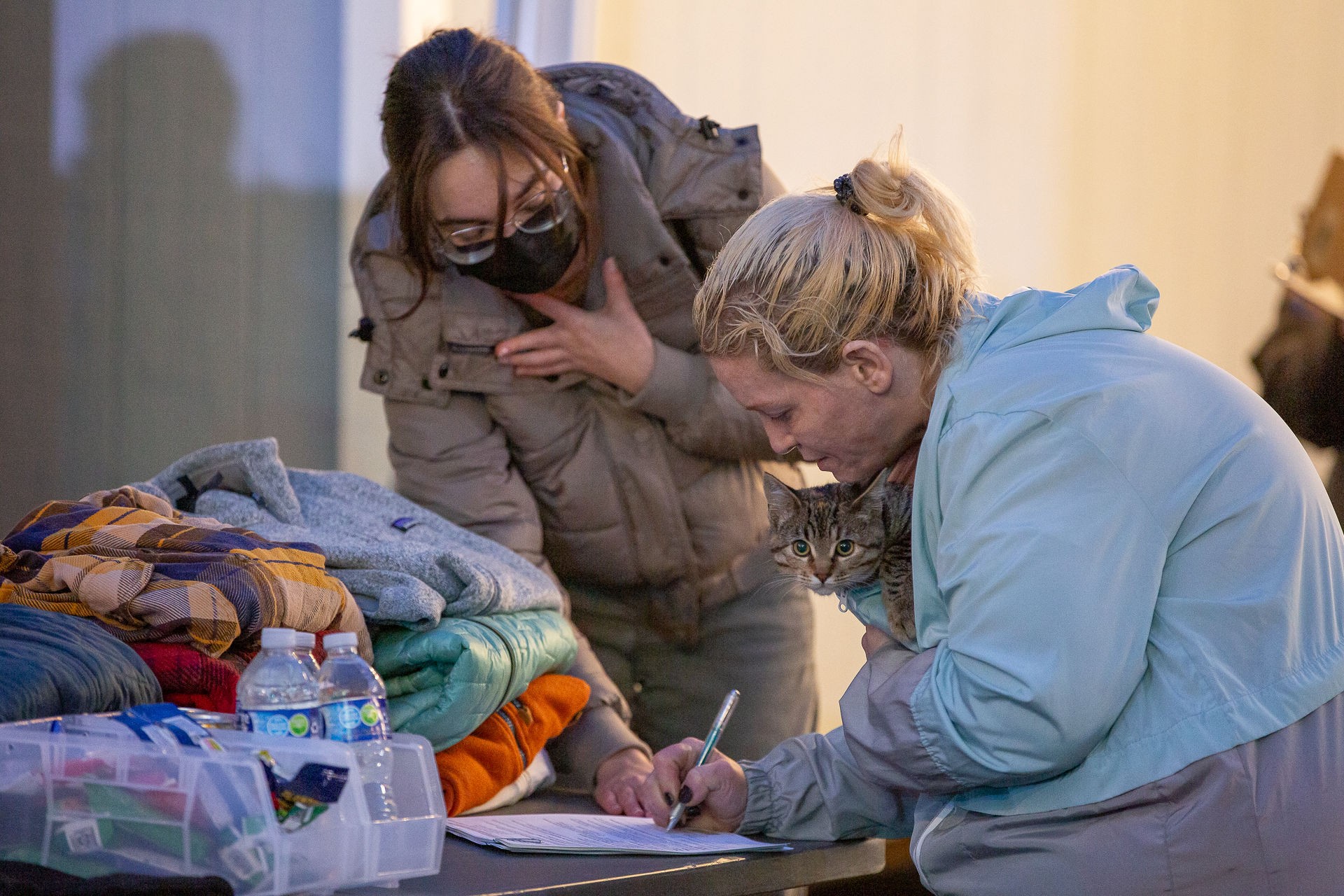 Mobile Health Outreach Program Coordinator assists Tiny Village resident and her kitten
Mobile Health Outreach Program Coordinator assists Tiny Village resident and her kitten
Image alt: A coordinator from a Mobile Health Outreach program helping a resident and her kitten in a Tiny Village, showcasing community support.
6. What Are the Costs Associated with These Services?
Many mobile clinics and outreach programs in Vietnam offer free or low-cost services, particularly to vulnerable populations. However, some programs may charge a nominal fee for certain services or medications. It is advisable to inquire about the costs associated with specific services before receiving treatment.
6.1. Free Services
Many mobile clinics and outreach programs offer free services to vulnerable populations, such as:
6.1.1. Primary Care
Primary care services, such as general check-ups and treatment of common illnesses, are often provided free of charge to those who cannot afford to pay.
6.1.2. Health Screenings
Health screenings, such as blood pressure checks and blood sugar testing, are often provided free of charge as part of preventive health programs.
6.1.3. Vaccinations
Vaccinations, such as childhood immunizations and flu shots, are often provided free of charge through government-sponsored programs.
6.2. Low-Cost Services
Some mobile clinics and outreach programs may charge a nominal fee for certain services or medications. These fees are typically kept low to ensure that services remain accessible to those with limited financial resources.
6.2.1. Medications
Medications may be provided at a subsidized cost to patients who cannot afford to pay the full price.
6.2.2. Specialized Care
Specialized care services, such as dental services and eye care, may be provided at a reduced cost to patients who meet certain eligibility criteria.
6.3. Insurance Coverage
Travel insurance policies may cover the costs associated with accessing mobile clinics and outreach programs. Tourists should review their insurance policies to determine the extent of their coverage.
6.3.1. Reimbursement for Medical Expenses
Travel insurance policies may reimburse tourists for medical expenses incurred while traveling, including those associated with accessing mobile clinics and outreach programs.
6.3.2. Direct Billing Agreements
Some mobile clinics and outreach programs may have direct billing agreements with travel insurance providers, allowing tourists to receive care without having to pay out-of-pocket.
6.4. How SIXT.VN Helps Manage Costs
SIXT.VN assists tourists by providing clear information on the costs associated with healthcare services and helping them navigate insurance coverage options. We also offer travel packages that include insurance, ensuring that travelers are financially protected in case of medical emergencies. Our goal is to provide transparent and affordable travel solutions, so you can focus on enjoying your trip.
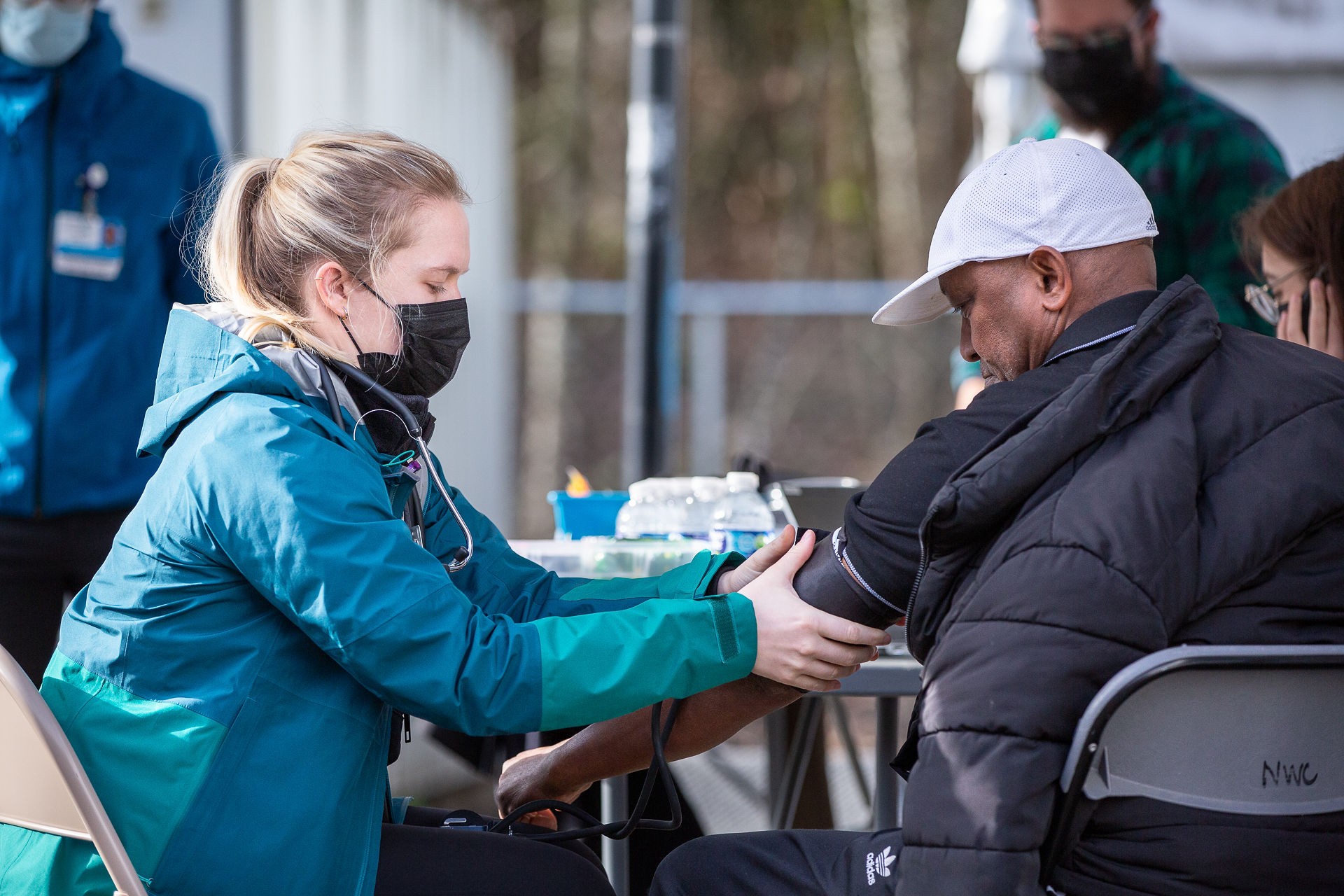 Student volunteer takes vitals for a resident
Student volunteer takes vitals for a resident
Image alt: A student volunteer takes vital signs of a resident during a mobile health outreach in Vietnam, demonstrating hands-on care.
7. What Are the Challenges Faced by Mobile Clinics and Outreach Programs?
Mobile clinics and outreach programs in Vietnam face several challenges, including limited funding, inadequate infrastructure, and a shortage of healthcare professionals. These challenges can hinder their ability to reach remote communities and provide comprehensive healthcare services. Addressing these challenges requires sustained investment, innovative solutions, and strong partnerships between government agencies, NGOs, and international organizations.
7.1. Limited Funding
Limited funding is a major challenge for mobile clinics and outreach programs in Vietnam. These programs often rely on donations and grants to cover their operating costs, making them vulnerable to funding shortfalls.
7.1.1. Impact on Service Delivery
Limited funding can impact the ability of mobile clinics and outreach programs to provide comprehensive healthcare services. These programs may have to reduce their operating hours, limit the scope of their services, or postpone outreach activities.
7.1.2. Strategies for Securing Funding
Mobile clinics and outreach programs can employ various strategies to secure funding, such as:
- Applying for grants from government agencies, foundations, and corporations.
- Organizing fundraising events and campaigns.
- Developing partnerships with local businesses and community organizations.
7.2. Inadequate Infrastructure
Inadequate infrastructure can hinder the ability of mobile clinics and outreach programs to reach remote communities. Poor roads, lack of electricity, and limited access to clean water can make it difficult to transport equipment and supplies and to provide healthcare services in a safe and hygienic environment.
7.2.1. Impact on Accessibility
Inadequate infrastructure can limit the accessibility of mobile clinics and outreach programs, preventing them from reaching communities in need.
7.2.2. Strategies for Overcoming Infrastructure Challenges
Mobile clinics and outreach programs can employ various strategies to overcome infrastructure challenges, such as:
- Using specially equipped vehicles that can navigate difficult terrain.
- Investing in portable generators and water purification systems.
- Collaborating with local communities to improve infrastructure.
7.3. Shortage of Healthcare Professionals
A shortage of healthcare professionals is a significant challenge for mobile clinics and outreach programs in Vietnam. Many rural and remote areas lack doctors, nurses, and other healthcare providers, making it difficult to staff these programs.
7.3.1. Impact on Service Quality
A shortage of healthcare professionals can impact the quality of services provided by mobile clinics and outreach programs. Overworked and understaffed healthcare providers may be unable to provide the same level of care as those in better-resourced facilities.
7.3.2. Strategies for Addressing the Shortage
Mobile clinics and outreach programs can employ various strategies to address the shortage of healthcare professionals, such as:
- Offering incentives to attract healthcare providers to rural and remote areas.
- Providing training and support to local healthcare workers.
- Using telemedicine to connect patients with specialists in urban areas.
7.4. Logistical and Cultural Barriers
7.4.1. Logistical Challenges
Navigating Vietnam’s diverse terrain, especially in mountainous or remote areas, poses significant logistical hurdles for mobile clinics. Maintaining a reliable supply chain for medical equipment and medications is also a persistent challenge.
7.4.2. Cultural Sensitivity
Effective healthcare delivery requires an understanding of local customs and traditions. Building trust with communities and addressing cultural beliefs about health are crucial for the success of outreach programs.
7.5. How SIXT.VN Helps Overcome These Challenges
SIXT.VN contributes to overcoming these challenges by providing logistical support and promoting healthcare awareness. Our services ensure that travelers can access reliable transportation to healthcare facilities and receive up-to-date information on available medical resources. By facilitating access to healthcare and promoting responsible tourism, SIXT.VN supports the efforts of mobile clinics and outreach programs in Vietnam.
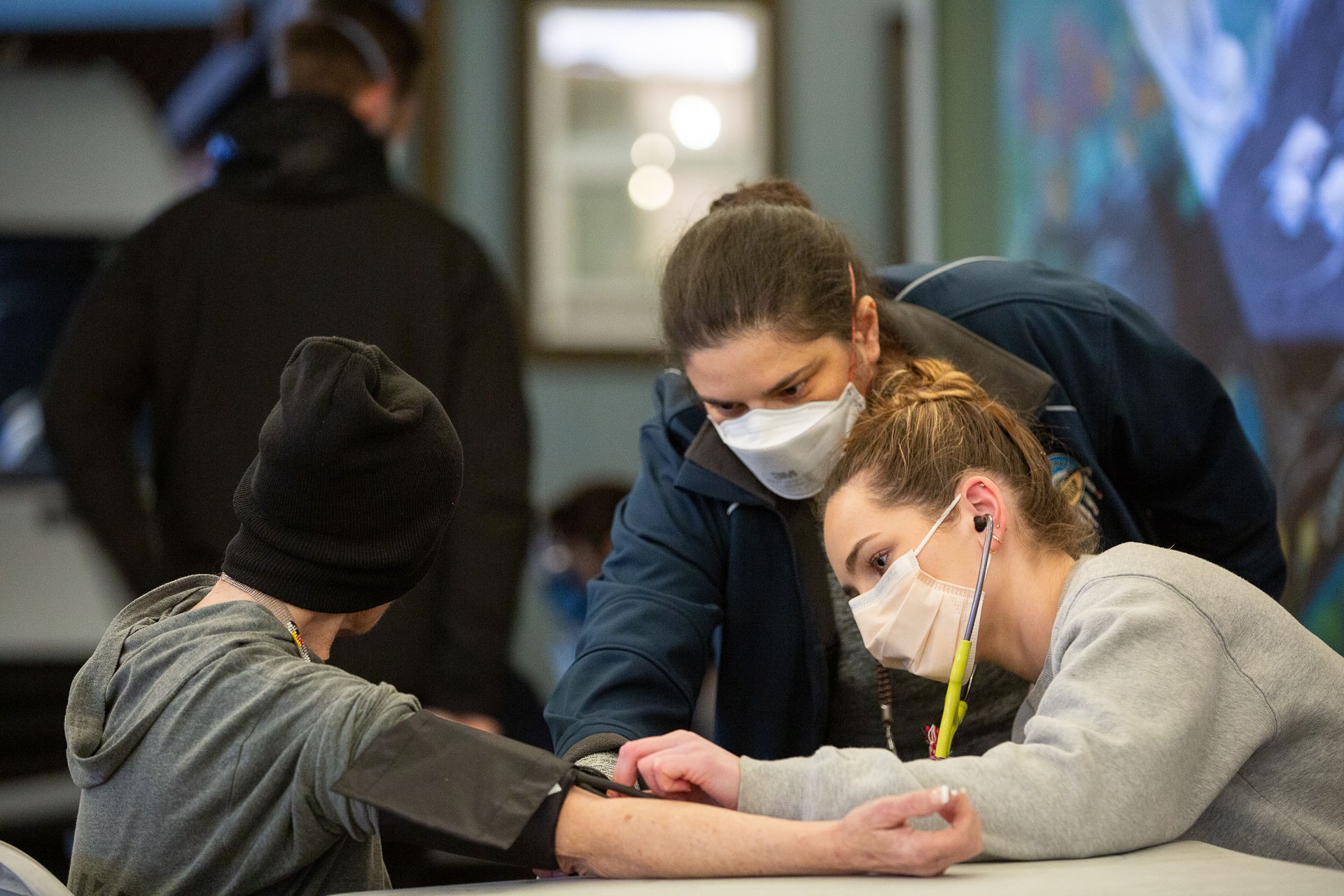 Interprofessional preceptors guide student volunteers through outreaches to maximize the learning
Interprofessional preceptors guide student volunteers through outreaches to maximize the learning
Image alt: Interprofessional instructors guide student volunteers during a mobile health outreach in Vietnam, enhancing their learning experience.
8. What Are the Future Trends in Mobile Clinics and Outreach Programs?
The future of mobile clinics and outreach programs in Vietnam is likely to be shaped by several emerging trends, including the use of technology, integration with primary healthcare, and a focus on preventive care. These trends have the potential to enhance the effectiveness and sustainability of these programs, enabling them to reach more communities and improve health outcomes.
8.1. Use of Technology
Technology is playing an increasingly important role in mobile clinics and outreach programs in Vietnam. Telemedicine, mobile health apps, and electronic health records are being used to improve access to care, enhance communication, and streamline operations.
8.1.1. Telemedicine
Telemedicine allows healthcare providers to remotely diagnose and treat patients using video conferencing, phone calls, and other communication technologies. This can be particularly useful in rural and remote areas where access to specialists is limited.
8.1.2. Mobile Health Apps
Mobile health apps can provide patients with information on health conditions, treatment options, and healthy lifestyle choices. These apps can also be used to track health metrics, such as blood pressure and blood sugar levels.
8.1.3. Electronic Health Records
Electronic health records (EHRs) allow healthcare providers to securely store and access patient information electronically. This can improve care coordination, reduce medical errors, and streamline billing and insurance processes.
8.2. Integration with Primary Healthcare
Integrating mobile clinics and outreach programs with primary healthcare services can improve care coordination and ensure continuity of care. This can involve:
8.2.1. Referral Systems
Establishing referral systems between mobile clinics and primary care providers can ensure that patients receive appropriate follow-up care.
8.2.2. Shared Electronic Health Records
Sharing electronic health records between mobile clinics and primary care providers can improve care coordination and reduce medical errors.
8.2.3. Co-Location of Services
Co-locating mobile clinics with primary care facilities can improve access to a range of healthcare services in one convenient location.
8.3. Focus on Preventive Care
Preventive care is becoming an increasingly important focus of mobile clinics and outreach programs in Vietnam. By emphasizing prevention, these programs can help reduce the incidence of chronic diseases and improve overall health outcomes.
8.3.1. Health Education
Health education is a key component of preventive care. Mobile clinics and outreach programs can provide communities with information on healthy lifestyle choices, such as healthy eating, regular exercise, and avoiding tobacco and alcohol.
8.3.2. Health Screenings
Health screenings can help identify individuals at risk for chronic diseases, allowing for early intervention and treatment.
8.3.3. Vaccinations
Vaccinations are a cornerstone of preventive healthcare, protecting individuals and communities from infectious diseases.
8.4. Community Empowerment
8.4.1. Community Health Workers
Training and empowering local residents to serve as community health workers can enhance the sustainability and effectiveness of mobile clinics. These workers can bridge cultural gaps and provide essential health education.
8.4.2. Participatory Approaches
Involving communities in the planning and implementation of healthcare programs ensures that services are culturally appropriate and meet the specific needs of the population.
8.5. How SIXT.VN Supports Future Trends
SIXT.VN is committed to supporting the future trends in mobile clinics and outreach programs by integrating technology into our services and promoting preventive healthcare. Our platform provides travelers with access to telemedicine resources and health information, ensuring they can make informed decisions about their health. By promoting responsible and health-conscious tourism, SIXT.VN contributes to the well-being of both travelers and local communities in Vietnam.
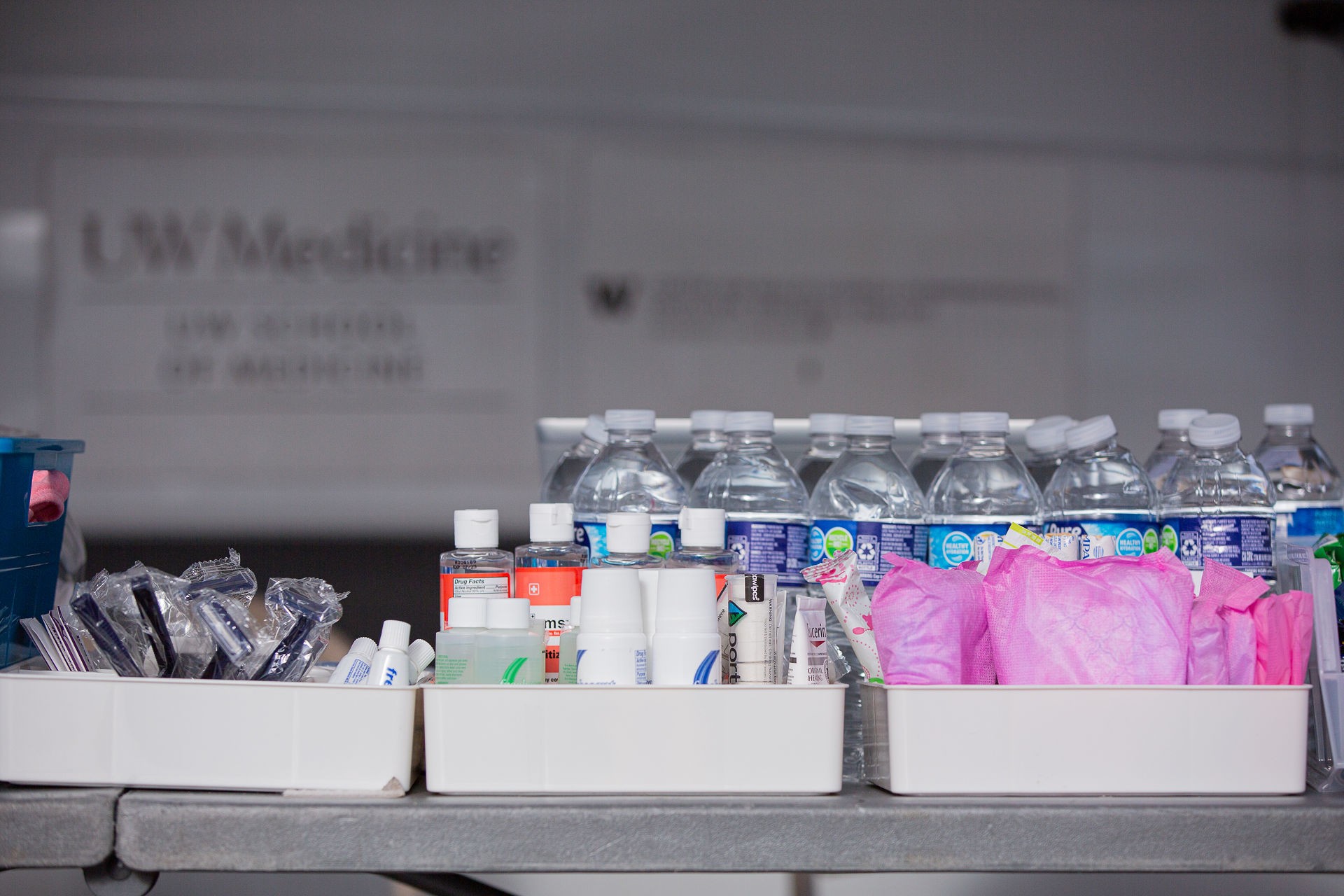 In addition to providing limited scope care, MHO program offers free basic health and hygiene items to residents
In addition to providing limited scope care, MHO program offers free basic health and hygiene items to residents
Image alt: Free health and hygiene products provided by a Mobile Health Outreach program in Vietnam, offering basic support to residents.
9. Practical Tips for Tourists Regarding Healthcare in Vietnam
When planning a trip to Vietnam, it’s essential to be prepared for any health-related situations that may arise. Here are some practical tips to help you stay healthy and safe during your travels:
9.1. Pre-Travel Preparations
9.1.1. Consult Your Doctor
Before traveling, consult your doctor to discuss any necessary vaccinations, medications, and health precautions. Ensure that you have all required vaccinations and any personal medications you need.
9.1.2. Pack a Medical Kit
Pack a comprehensive medical kit with essentials such as pain relievers, antiseptic wipes, bandages, diarrhea medication, and any prescription drugs you require.
9.1.3. Obtain Travel Insurance
Purchase comprehensive travel insurance that covers medical expenses, emergency evacuation, and repatriation. Ensure that your insurance policy covers the activities you plan to undertake during your trip.
9.2. During Your Trip
9.2.1. Practice Food and Water Safety
Be cautious about what you eat and drink. Drink bottled or purified water, and avoid ice in your drinks. Eat at reputable restaurants and avoid street food unless you are confident in its preparation and hygiene.
9.2.2. Protect Yourself from Mosquito Bites
Mosquito-borne diseases such as dengue fever and Zika virus are present in Vietnam. Use mosquito repellent, wear long sleeves and pants, and sleep under a mosquito net, especially during dawn and dusk.
9.2.3. Stay Hydrated
Drink plenty of fluids, especially in hot and humid weather, to prevent dehydration. Carry a reusable water bottle and refill it throughout the day.
9.2.4. Be Aware of Air Quality
Air pollution can be a concern in urban areas. Check air quality levels and take precautions, such as wearing a mask, if necessary.
9.2.5. Know Emergency Numbers and Locations
Familiarize yourself with local emergency numbers and the locations of hospitals and clinics in the areas you plan to visit.
9.3. Accessing Healthcare Services
9.3.1. Contact Your Embassy or Consulate
In case of a medical emergency, contact your embassy or consulate for assistance. They can provide information on local medical facilities and help you navigate the healthcare system.
9.3.2. Use Reliable Transportation
Use reliable transportation services, such as those offered by SIXT.VN, to reach healthcare facilities. Our services ensure you can get to medical assistance quickly and safely.
9.3.3. Seek Reputable Medical Facilities
Seek medical care from reputable hospitals and clinics. Tourist information centers and your embassy or consulate can provide recommendations.
9.4. Staying Informed with SIXT.VN
SIXT.VN provides travelers with up-to-date information on healthcare services and resources in Vietnam. By using our platform, you can stay informed about available medical facilities, access reliable transportation, and ensure a safe and healthy trip.
9.5. Health and Safety Resources
Here are some health and safety resources to ensure a smooth trip to Vietnam:
| Resource | Description |
|---|---|
| CDC Vietnam | Provides updated health information and travel advisories. |
| WHO Vietnam | Offers insights on healthcare infrastructure and prevalent health issues. |
| Local Clinics | Available for immediate health concerns; usually listed at hotels. |
| Travel Insurance Provider | Offers comprehensive coverage for medical emergencies and evacuations. |
| SIXT.VN Support | Provides transportation and resources for accessing healthcare facilities. Check the SIXT.VN website or contact hotline for assistance. |
By following these practical tips and staying informed with SIXT.VN, you can enjoy a safe and healthy trip to Vietnam.
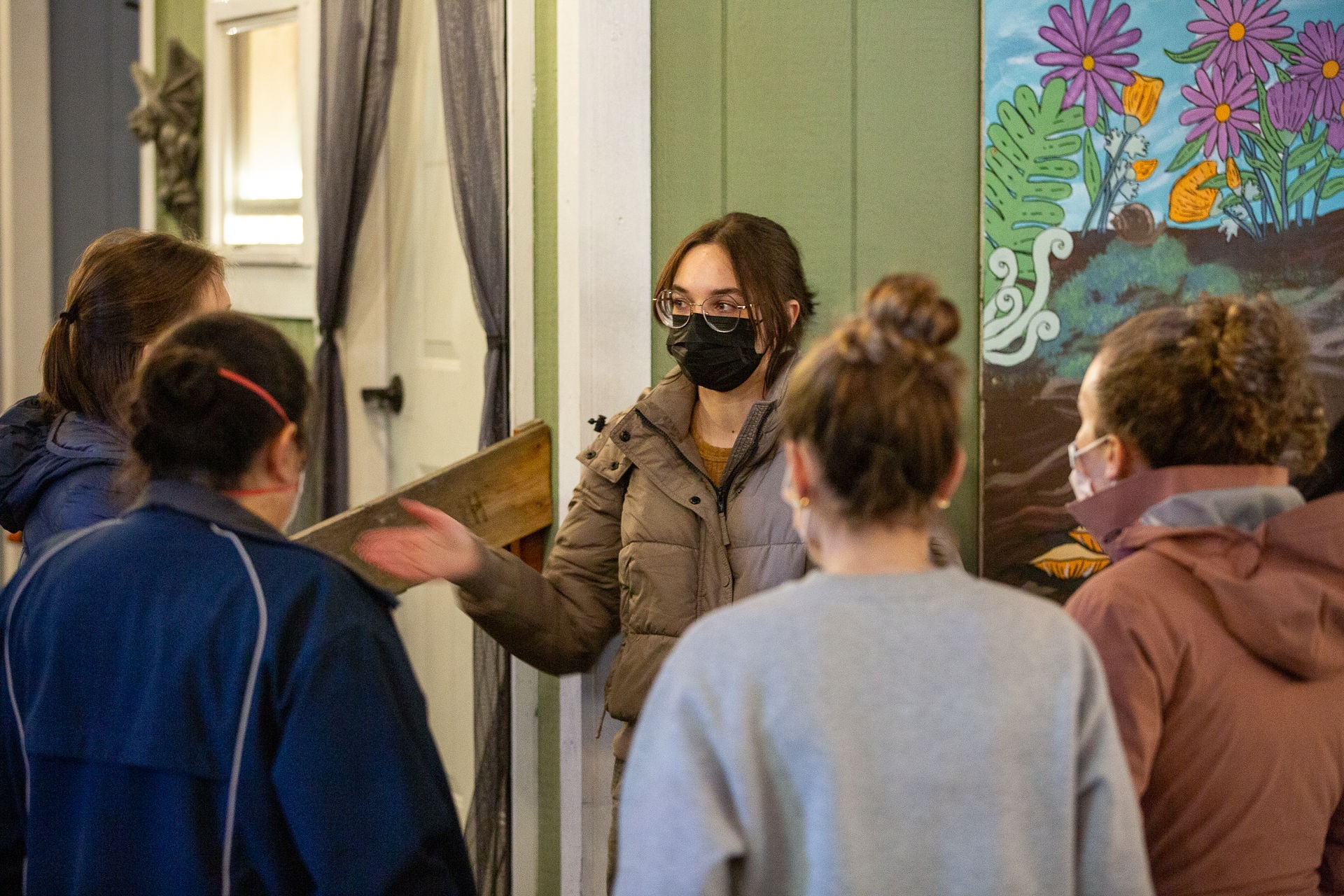 MHO Program Coordinator leads a discussion during an outreach
MHO Program Coordinator leads a discussion during an outreach
Image alt: A Mobile Health Outreach Program Coordinator leads a discussion during a community outreach event in Vietnam, promoting health awareness.
10. FAQs About Mobile Clinics and Outreach Programs in Vietnam
10.1. Are mobile clinics common in Vietnam?
Yes, mobile clinics are common, especially in rural and remote areas with limited access to healthcare facilities.
10.2. What types of services do mobile clinics offer?
Mobile clinics typically offer primary care services, health screenings, vaccinations, maternal and child health services, and health education.
10.3. Are these services free for tourists?
Some services may be free or low-cost, especially those offered by government-sponsored programs. However, it’s advisable to inquire about the costs beforehand.
10.4. How can I find a mobile clinic near me?
You can inquire at local health centers, tourist information centers



